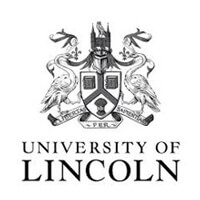fees waived
Banking and Finance, BSc (Hons), with industry placement
University of Lincoln, United Kingdom
Ranking in UK
Accounting and Finance
Accounting and Finance
Accounting and Finance
Costs
food & rent S$17.1K / year
Entry requirements
Scholarships
Unlimited quantity
Unlimited quantity
Unlimited quantity
Unlimited quantity
Limited quantity
Limited quantity
Information
Code
Code
Intakes
Website (External)
Programmes
Information
Duration
2029
Lincoln's Banking and Finance degree equips aspiring professionals for careers in the financial sector, such as securities analysts, financial managers, or private/commercial bankers. The program fosters understanding of economic mechanisms, banking decision-making, and international financial systems, while exploring how government policies affect stock markets, corporate actions influence prices, and wealth is generated for individuals and businesses.Students begin with foundational studies in economic principles, accounting, finance, and data analysis, advancing to specialized topics in financial and banking management. In the final year, optional modules allow focus on specific interests, subject to availability. Assessment varies by module and may include coursework like essays or dissertations, exams, portfolios, group projects, and presentations, delivered by professors, lecturers, and industry experts.
During this course, students are encouraged to learn about how the economy works, how decisions are made in banking and finance and how financial systems and capital markets operate in an international context. They are invited to explore how government policies influence the overall stock market index, how corporate actions affect stock prices and how private and corporate wealth is created. Students can learn the foundations of economic principles, accounting and finance, and business data analysis before progressing to more advanced financial and banking management. Final year students can choose from optional modules in order to focus on areas of particular interest. For the most up to date module information, please visit the course page for this programme on our website. Some programmes provide you with the opportunity to focus your study in a particular area through optional modules. Timetabling arrangements may limit the availability of some optional modules to some students. As the options often reflect staff research interests, they may alter over time due to staff availability.
A local representative of University of Lincoln in Singapore is available online to assist you with enquiries about this course.

